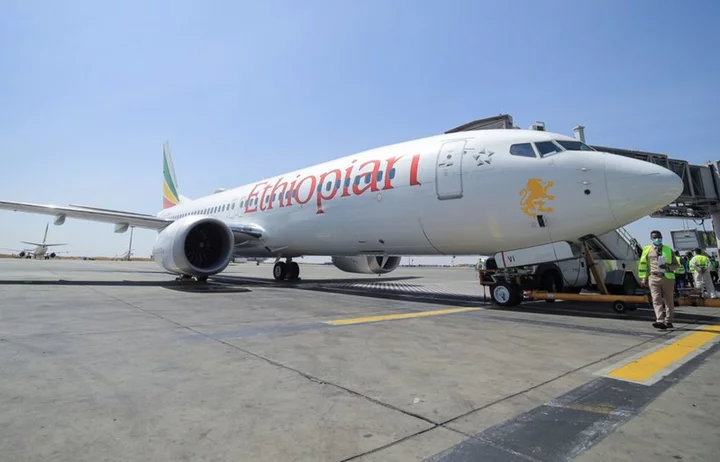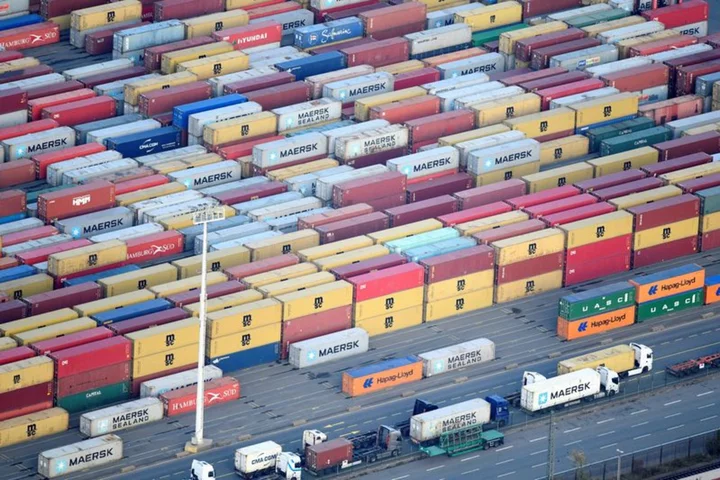DUBAI Ethiopian Airlines on Tuesday placed an order for Boeing 737-8 MAX narrow-body jets, nearly five years after the fatal 2019 MAX aircraft crash that led to the grounding of the global fleet.
In March 2019, an Ethiopian Airlines 737 MAX plane crashed shortly after take-off from Ethiopia's capital Addis Ababa, killing all 157 passengers and crew on board. The accident followed a Lion Air 737 MAX crash in Indonesia's Java Sea five months earlier which killed all 189 people on board.
The accidents exposed a problem with a system on the plane, and the model was grounded worldwide, costing the U.S. planemaker some $20 billion and prompting court cases that exposed shortcomings with the certification process.
"We believe we have checked and confirmed that the design defect of that aircraft has been fully corrected by Boeing," Ethiopian Airlines CEO Mesfin Tasew told reporters, announcing an order for 20 737 jets and 11 787-9 Dreamliners.
"We have renewed our confidence in that aircraft."
Ethiopian Airlines announced the order on the second day of the week-long Dubai Airshow, where order announcements have been dominated by U.S. planemaker Boeing.
Tasew said Ethiopian Airlines expects to exercise options to purchase another 21 of the narrow-body planes. It also has purchasing options for a further 15 787-9 Dreamliner jets.
The airline will announce an order for wide-body jets, either the Boeing 777X or Airbus A350, in the coming months, he said, declining to say how many wide-body jets it would order.
Tasew added that Ethiopian Airlines had been interested in buying the Airbus A220 jet to replace turboprop aircraft but that it would not consider the jet until engine issues were "corrected".
"Until we see the engine problem solved, we are not encouraged to place an order," he said.
Airbus and Pratt & Whitney, which makes the engine on the A220, did not immediately respond to an emailed request for comment.
A220 operators have had to grapple with some durability issues, compounded by a shortage of spare engines and maintenance bottlenecks that have collectively reduced the supply of working engines and leaving some planes grounded.
(Reporting by Alexander Cornwell; editing by Louise Heavens and Jason Neely)









